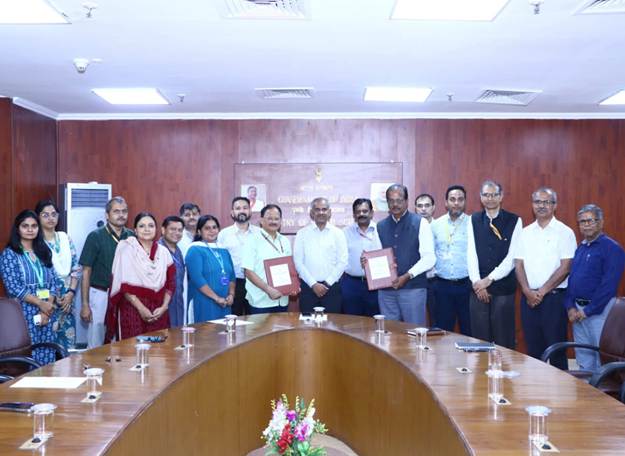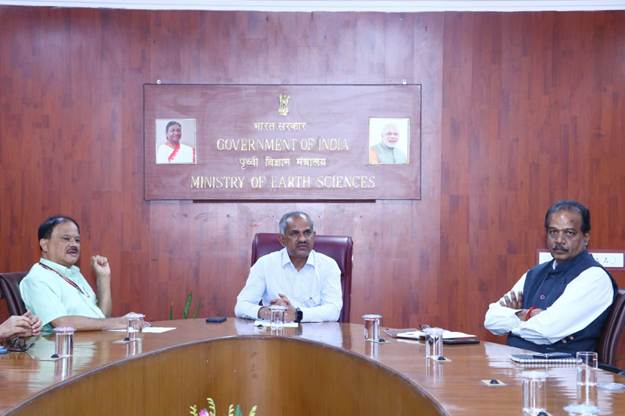Ministry of Earth Sciences
NCMRWF Signs MoU with NSIL to Establish Two Direct Broadcast Network (DBNet ) Stations in India under Mission Mausam, Strengthening Weather Forecasting and Global Climate Monitoring
Posted On:
23 SEP 2025 7:10PM by PIB Delhi
The National Centre for Medium Range Weather Forecasting (NCMRWF), under the Ministry of Earth Sciences (MoES), Government of India, signed a Memorandum of Understanding (MoU) with New Space India Limited (NSIL), the commercial arm of the Department of Space (DoS) today in Prithvi Bhavan, New Delhi. This MoU aims to establish two Direct Broadcast Network (DBNet) stations — one in Delhi/NCR and the other in Chennai — as part of the Mission Mausam project of MoES.
DBNet is a global operational framework designed for the real-time acquisition of satellite data from Low Earth Orbit (LEO) satellites. It plays a critical role in Numerical Weather Prediction (NWP) and supports a wide range of applications, including weather forecasting, cyclone monitoring, and climate research. By directly receiving and processing satellite signals within minutes of transmission, DBNet stations ensure rapid data availability, hence significantly improving the accuracy and timeliness of weather forecasts and related services.
The proposed DBNet stations will be capable of receiving direct broadcast data from various existing Indian and international Earth Observing System (EOS) satellites, including Oceansat, NOAA, and MetOp. The system architecture is designed to be scalable, allowing future integration of next-generation EOS satellite data reception.
Key Benefits:
- Timeliness for NWP: The primary advantage of DBNet is the near real-time availability of LEO satellite data, which is essential for generating high-resolution, short- to medium-range weather forecasts.
- Reduced Data Latency: Unlike traditional satellite data acquisition methods that involve delayed transmission to central ground stations, DBNet captures data directly as satellites pass overhead, overcoming latency issues and enabling faster data delivery.
- Rapid Processing: NCMRWF will complete the full data processing chain within 5 minutes of a satellite overpass, ensuring timely ingestion of these datasets into MoES’s NWP models for across-scale forecasting.
- Global Contribution: In alignment with the World Meteorological Organization’s (WMO) core satellite data policy, the processed DBNet data will be disseminated to international operational users via WMO’s next-generation data exchange platform, the WMO Information System – 2.0 (WIS 2.0). This will strengthen India’s contribution in improving the global DBNet coverage and enhancing the international availability of EOS satellite data within 30 minutes.
Through this initiative, India reaffirms its commitment to advancing regional and global weather prediction capabilities and supporting international efforts in weather forecasting and climate monitoring, hence disaster risk reduction.


******
NKR/PSM
(Release ID: 2170276)
Visitor Counter : 788